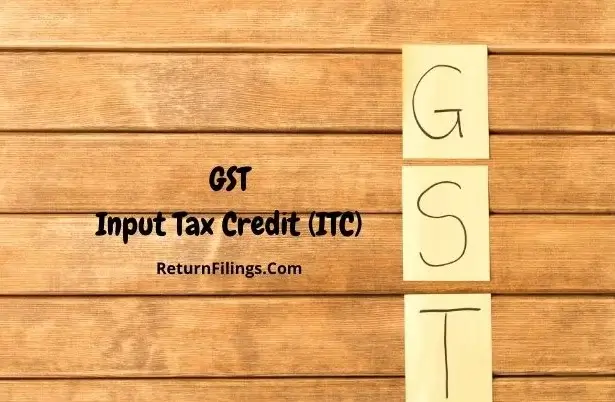GST Input Tax Credit (ITC) in India: Eligibility, Reconciliation & Compliance
1. Introduction to GST Input Tax Credit (ITC)
GST Input Tax Credit (ITC) is a fundamental concept in the Goods and Services Tax (GST) system that eliminates the cascading effect of taxation. ITC allows businesses to reduce the tax paid on inputs (purchases) from the tax payable on output (sales). This mechanism ensures that only the value addition at each stage of the supply chain is taxed.
2. Eligibility for ITC
To claim ITC, a registered taxpayer must meet the following conditions:
• Must be a registered taxpayer under GST (except for composition scheme taxpayers).
• Goods or services should be used for business purposes.
• Possession of a valid tax invoice or debit note issued by a registered supplier.
• The supplier has paid tax to the government.
• The recipient has received the goods or services.
• The recipient has filed the relevant GST return.
3. Documents Required to Claim ITC
The following documents are essential for availing ITC:
a. Tax Invoice issued by the supplier.
b. Debit Note issued by the supplier.
c. Bill of Entry for import transactions.
d. Invoice issued by recipient in case of Reverse Charge Mechanism (RCM).
e. Document issued by Input Service Distributor (ISD).
f. Revised invoices issued under GST provisions.
4. Conditions for Claiming ITC
• If the goods are received in multiple lots, ITC can be claimed only after receiving the final lot.
• ITC should be availed within the prescribed time limit, generally by the due date of filing the annual return for the relevant financial year.
• The recipient must pay the invoice amount, including tax, to the supplier within 180 days; otherwise, the ITC availed must be reversed.
• In case of part-payment, ITC is available proportionately, and the balance ITC must be reversed.
• Once the payment is made after 180 days, ITC can be reclaimed.
5. Blocked Credits Under Section 17(5) of CGST Act
ITC cannot be claimed on certain goods and services, commonly referred to as “Blocked Credits”:
• Motor vehicles and conveyances (except for specific business uses like transportation, leasing, and training).
• Food, beverages, outdoor catering, beauty treatments, health services, and cosmetic surgeries.
• Club memberships, health, and fitness center services.
• Rent-a-cab services, life, and health insurance (unless required by law).
• Travel benefits extended to employees for vacations.
• Works contract services for constructing immovable property (except where used for further supply of work contract services).
• Goods and services used for personal consumption.
• Goods lost, stolen, destroyed, written off, or disposed of as free samples or gifts.
• ITC on tax paid under the composition scheme.
6. Reconciliation of ITC with GSTR-2A and GSTR-2B
ITC claimed by the taxpayer should match with the supplier’s reported details in:
• GSTR-2A: A dynamic statement reflecting invoices uploaded by suppliers.
• GSTR-2B: A static statement generated on the 12th of every month, listing eligible ITC for the recipient.
Regular reconciliation of ITC with these forms helps prevent discrepancies, notices from tax authorities, and wrongful claims.
7. ITC in Case of Multiple State GST Registrations
Businesses with operations in multiple states must register separately for GST in each state. ITC must be:
• Claimed under the respective GSTIN where goods or services are received.
• Properly segregated for each state-wise registration.
• Mapped with the state-wise financial statements and reported accordingly in GSTR-9 (Annual Return).
• Transferred via cross-charge or ISD mechanism if centrally procured services are used across multiple states.
8. ITC Reversal and Re-Claiming
There are instances where ITC availed must be reversed:
• Non-payment to supplier within 180 days
• Use of inputs for exempt or non-business activities
• Block credits under Section 17(5)
• ITC claimed on invoices not reflecting in GSTR-2B
Once the conditions are met (e.g., payment to the supplier after 180 days), ITC can be reclaimed in subsequent returns.
9. Time Limits for Claiming ITC
ITC must be availed by the earlier of:
• The due date of filing GSTR-3B for September following the financial year.
• The due date of filing the annual return (GSTR-9).
10. Compliance Best Practices
• Regular reconciliation of purchase invoices with GSTR-2A/2B.
• Timely payment of invoices to avoid ITC reversal.
• Keeping proper documentation for ITC claims.
• Ensuring suppliers file their GST returns to prevent ITC mismatch.
11. Common Mistakes to Avoid
• Claiming ITC on blocked credits.
• Delayed payment to suppliers resulting in ITC reversal.
• Not reconciling ITC with GSTR-2B.
• Claiming ITC on invoices of different states.
• Missing the ITC claim deadline.
12. Conclusion
GST ITC is a crucial component of the GST framework, ensuring seamless input tax credit flow throughout the supply chain. Proper compliance and reconciliation can significantly impact the financial health of a business. Keeping up with GST regulations, maintaining accurate records, and leveraging automation tools can help businesses maximize ITC claims while staying compliant.
For professional assistance, reach out to us on email: info@returnfilings.com or on whatsapp: https://wa.me/919910123091.
frequently asked questions (faq's) related to GST Input Tax Credit compliances
Q What is Input Tax Credit (ITC)?+
A Input Tax Credit (ITC) is a mechanism under GST that allows a registered taxpayer to deduct the GST paid on their inputs (purchases) from the GST payable on their output supplies (sales). It's designed to avoid the cascading effect of taxes and ensure a smooth flow of credit.
Q Why is ITC important?+
A ITC is important because it: Reduces the tax burden on businesses. Prevents the cascading effect of taxes. Makes businesses more competitive. Promotes efficient tax compliance.
Q Who can claim ITC?+
A Any registered GST taxpayer can claim ITC on eligible inputs used in their business.
Q What are the conditions for claiming ITC?+
A The key conditions for claiming ITC are: The taxpayer must be a registered GST taxpayer. The inputs must be used for business purposes. The taxpayer must have a valid tax invoice. The supplier must have uploaded the invoice to the GST portal (in most cases). The recipient must have received the goods or services. The ITC claimed must be reflected in the recipient's GSTR-2B.
Q What inputs are eligible for ITC?+
A Generally, ITC is available on all inputs used in the course or furtherance of business, including raw materials, consumables, capital goods, and input services.
Q What inputs are ineligible for ITC?+
A Certain inputs are ineligible for ITC, including: Inputs used for personal consumption. Inputs used in making exempt supplies. Certain specific goods/services as notified by the government (e.g., motor vehicles and conveyances in certain cases, works contract services in certain cases, etc.). Composition scheme taxpayers cannot claim ITC.
Q How do I claim ITC?+
A ITC is claimed in the GST return (GSTR-3B). The invoices on which ITC is claimed are now largely auto-populated in GSTR-2B.
Q What is the process for claiming ITC?+
A The process generally involves: Ensuring that the supplier has uploaded the invoice. Checking the invoice details in GSTR-2B. Reporting the eligible ITC in GSTR-3B.
Q What is GSTR-2B?+
A GSTR-2B is an auto-populated statement of inward supplies for the recipient taxpayer. It shows the ITC that is available for the recipient to claim. It is generated monthly and is a key document for ITC reconciliation.
Q What is the time limit for claiming ITC?+
A ITC must be claimed within a specified time limit, usually before the due date for filing the return for the month/period in which the invoice was issued or within a specified time from the date of the invoice. Check the latest notifications as this time limit is subject to change.
Q What is ITC matching?+
A ITC matching is the process of comparing the invoice details uploaded by the supplier with the details reported by the recipient to ensure that the ITC claimed is valid.
Q Why is ITC reconciliation important?+
A ITC reconciliation is essential to: Identify any discrepancies between supplier and recipient data. Ensure that only eligible ITC is claimed. Avoid any issues with the tax authorities.
Q What happens if there are mismatches in ITC?+
A Mismatches can lead to delays in ITC claims or even rejection of the claims. It's crucial to reconcile data and resolve mismatches promptly.
Q What happens if I claim ineligible ITC?+
A Claiming ineligible ITC can lead to penalties and interest.
Q Can I claim ITC on inputs used to manufacture goods that are exported?+
A Yes, you can claim ITC on inputs used to manufacture goods that are exported. Exports are zero-rated supplies, and ITC is generally refundable in such cases.
Q What is the role of a professional in ITC compliance?+
A A professional can assist with ITC reconciliation, ensuring compliance with the rules, and advising on complex ITC-related issues.
Q How do I check my ITC availability?+
A You can check your ITC availability in GSTR-2B on the GST portal.
Q What is the difference between GSTR-2A and GSTR-2B?+
A GSTR-2A was a dynamic auto-populated statement, while GSTR-2B is a static auto-populated statement generated monthly. GSTR-2B is more reliable for ITC matching.
Q How do I rectify ITC mismatches?+
A You should communicate with your supplier to correct any errors in their invoices.
Q What happens if my supplier does not upload the invoice?+
A You will not be able to claim ITC on that invoice. Follow up with your supplier.
Q Can I claim ITC on job work charges?+
A ITC eligibility on job work charges depends on the specific nature of the job work and the goods involved.
Q What are the latest notifications and circulars related to ITC?+
A The GST portal and CBIC website are the official sources for notifications and circulars.
Q How do I reverse ITC?+
A You may need to reverse ITC in certain situations, such as when goods are returned or when ITC was claimed incorrectly. The process is specified on the GST portal.
Q What is the meaning of "ITC reversal"?+
A It means reducing the ITC already claimed in certain circumstances as per the GST rules.
Q Can I claim ITC on capital goods?+
A Yes, you can claim ITC on capital goods used in your business, subject to certain conditions.
Q Where can I find legal advice regarding ITC?+
A You should consult with a professional specializing in GST law, reach out to us on email: info@returnfilings.com or on whatsapp:
- For further reading, explore the following topics:
- 📢 Latest updates on DIN requirements for Indian companies
- 📄 How to update MoA and AoA after company name change
- 📋 How to File GST Annual Return in India: Applicability, Required Forms & Filing Procedure
- 🚚 How to Generate GST E-Way Bill in India: Applicability, Process & Compliance Checklist

